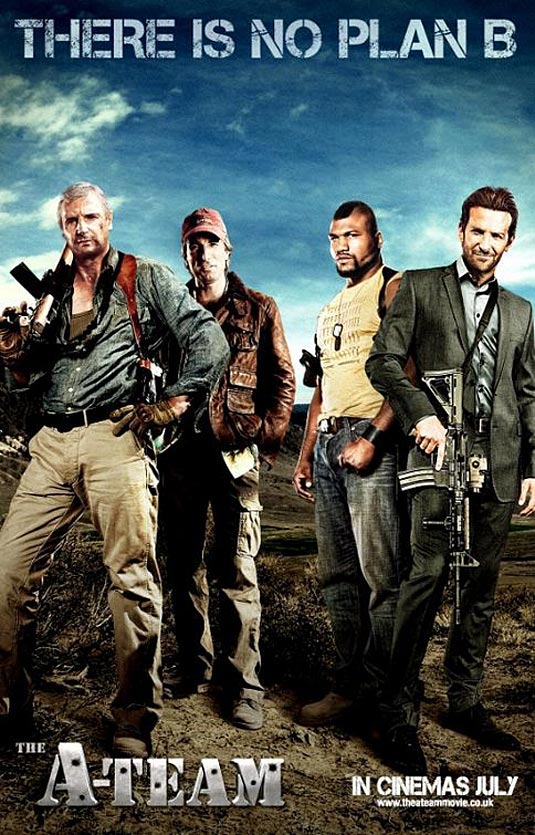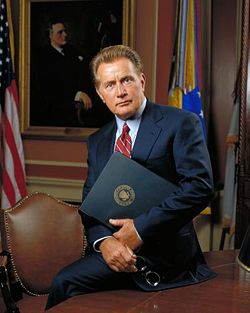Since its creation, television has been battling with cinema to provide us with our information and entertainment. When television was available on a larger scale, cinema audiences started to decrease, unable to provide entertainment and news in people‘s homes. Yet cinema always had the edge with larger budgets and more prestige for people in the entertainment business. Many movie actors and directors started their careers in television, such as Ridley Scott and Clint Eastwood.
Since the late '90s, however, the line between television and cinema has become more blurred, with programs gaining bigger budgets and bigger actors piloting them. Links between television and cinema existed much before the late '90s. One of the best examples was the award-winning film M*A*S*H, which became the longest-running TV program ever.
Links between television and cinema existed much before the late '90s. One of the best examples was the award-winning film M*A*S*H, which became the longest-running TV program ever.
In the '90s, studios began turning classic television programs into movies, such as The Flintstones, Lost in Space, The Brady Bunch and Mission: Impossible. Although some of these films had instant name recognition and a strong fan-base to help launch them to silver-screen success, the filmmakers often deviated from the source material. Regardless, more programs were turned into hits in the next decade, with Starsky and Hutch, Transformers and Charlie’s Angels all becoming hits. Taking that all the way to this summer, the adaptations of The A-Team (the '80s series) and The Last Airbender (based on the Nickelodeon cartoon) are two of the potentially biggest hits of 2010.
By the late '90s, television was improving in the fields of quality storytelling, production values and star power. The American broadcasting company HBO started this with the excellent prison drama Oz in 1997. Oz was a tough, hard-hitting prison program that did not hold-back on its subject matter or violence. It was a show that started a trend of programs lasting an hour without advertisements, yet rich in multiple story arcs and with a cast who would eventually go on to bigger projects: Harold Perrineau, J.K. Simmons and Adewale Akinnuoye-Agbaje just to name a few.
Network television quickly followed and in 1999 the brilliant show The West Wing, created by Aaron Sorkin, the playwright and screenwriter of A Few Good Men and The American President, debuted. The West Wing had a cast of experienced actors like Bradley Whitford, John Spencer and Rob Lowe: but the real feather in the show’s cap was casting film star Martin Sheen (Apocalypse Now, Wall Street) as the president of the United States. This was unprecedented and gave the program even more gravitas. The West Wing was also able to attached big name guest stars like Glenn Close, William Fichtner, Matthew Perry and John Goodman. The political drama was an example of television at its b est and proved that with excellent values/themes, they could easily match cinema’s best offerings.
est and proved that with excellent values/themes, they could easily match cinema’s best offerings.
This trend continued in the early part of this century, with HBO offering high-quality programming such as The Sopranos and The Wire. Networks were also making more programs with established stars taking big roles such as Kiefer Sutherland and Terri Hatcher in 24 and Desperate Housewives respectively. Network television has improved a lot with bigger budgets and better writing. Many shows were able to become grander in scope and have wider story arcs throughout a season or over the course of many seasons. Examples of this happening include 24, Alias, Lost and Heroes.
It’s not just in America where television has improved: Britain developed a rebooted Doctor Who series, Italy’s RAI co-produced Rome, and most recently, The Pacific became the most expensive program to be filmed in Australia.
Big names from the film industry have started to produce successful television programs too. Steven Spielberg is one of the biggest directors around he produced the excellent mini-series Band of Brothers as well as Taken and The Pacific. All three have been critically well received and popular with audiences. Others have followed Spielberg’s lead into television: the great Martin Scorsese is producing and has directed the pilot for Broadway Empire and David S. Goyer, writer of the Blade series and rebooted Batman films, has written, produced and directed episodes of the hit show Flashforward. The fame and prowess of some TV stars has definitely increased over the years with TVs increased exposure. The cast of Friends all become famous because of their roles in the sitcom and have become big earners. Kelsey Grammer became one of the highest paid stars on television as Frasier Crane, a character which spanned two hit series, Cheers and Frasier. Many television stars are as recognizable and as well-paid as their movie star counterparts.
The fame and prowess of some TV stars has definitely increased over the years with TVs increased exposure. The cast of Friends all become famous because of their roles in the sitcom and have become big earners. Kelsey Grammer became one of the highest paid stars on television as Frasier Crane, a character which spanned two hit series, Cheers and Frasier. Many television stars are as recognizable and as well-paid as their movie star counterparts.
But as the prestige of television has increased, it can easily be argued that television has become a testing ground for actors and producers who go into films. Many people from Alias, namely star Jennifer Garner, creator J.J. Abrams and writers Robert Orci and Alex Kurtzman have all ended up starring, directing or writing big films. There are some people, however, who have been very successful on the small screen but have not been able to make the jump into filmmaking. Lost star Matthew Fox did not find success with Vantage Point, nor did the writer of The Sopranos, Terence Winter, who sadly failed with his screenplay Get Rich or Die Tryin‘.
Networks are businesses and can be very short-sighted when it comes to programming decisions. A few years back, NBC's Studio 60 on the Sunset Strip was met with critical acclaim, but it never had a strong audience base and was canceled after one season.
Shows can also be kept going despite declining quality. Joss Whedon stated that Buffy the Vampire Slayer was meant to last five seasons and no more. But he was convinced to make another two seasons which were never met the same positive critical reaction. This is true for many shows: The Simpsons has been going for 20 years but some of its die-hard fans will say the show has not been anywhere near as good since the eighth or ninth season.
Cinema does suffer from this issue as well, but there are signs of hope. Audiences have turned away from films that are trying to become a series when they are not so good, like The Golden Compass, a film that wanted to be the next Lord of the Rings but ended up butchering the brilliant novel it’s based on. The firstHellboy movie was not a box-office hit, but was met with enough critical praise, solid DVD sales and passion from Guillermo del Toro for a sequel to be made. Even Blade Runner was a box-office flop when it was first released, but it found new life on video and DVD with a director’s cut. It’s now recognized as one of the best sci-fi films ever.
The lines between TV and cinema continue to mix. With 24 canceled the movie is now on the move. Star Wars had a spin-off with the animated series Star Wars: Clone Wars which has been a big success. One of the most eagerly awaited shows is a live-action spin-off from Star Wars set between Revenge of the Sith and A New Hope.
Many film and television companies are owned by the same company, making the links between the two easier. 20th Century Fox is an obvious one producing both The Simpsons TV series and The Simpsons Movie. Paramount Studios and Comedy Central are both owned by Viacom which has also led to some TV adaptations like South Park: Bigger, Longer and Uncut. Universal and Warner Brothers also have a sister TV company each and there are links between the two. For example, there has always been the lingering possibility of one more more Friends movies.
Even HBO has a film division, making TV movies like Recount staring Kevin Spacey and producing the Sex and the City movie. If The Sopranos or Deadwood movies are made, then HBO would still be attached.
This is not just an American phenomenon; there are similar situations in other nations. One example is in Britain with the publicly funded BBC and commercial broadcaster Channel Four having film divisions. Both have produced and financed films in Britain and abroad: In the Loop (which was a spin-off of The Thick of It), An Education, The Last King of Scotland, Slumdog Millionaire and The Lovely Bones are just a few examples.
Although there are some problems with the links between TV and cinema, particularly with adaptations, the fact that the two medias are both challenging each other for audiences and quality can only bring some healthy competition which is good for the audience and consumer.